It may surprise you, dear reader, that the person who decided to review Wonka isn’t someone that suffers from a debilitating sweet tooth. Don’t get me wrong, I love a sweet reward now and again. But even when I was a young boy trick or treating, I cared more about sorting my haul than actually eating it. That said, there is one thing I definitely share with the titular protagonist: We’re both dreamers. And while that might seem insufficient on occasion, sometimes all you need in life is a dream and the motivation to make it a reality.
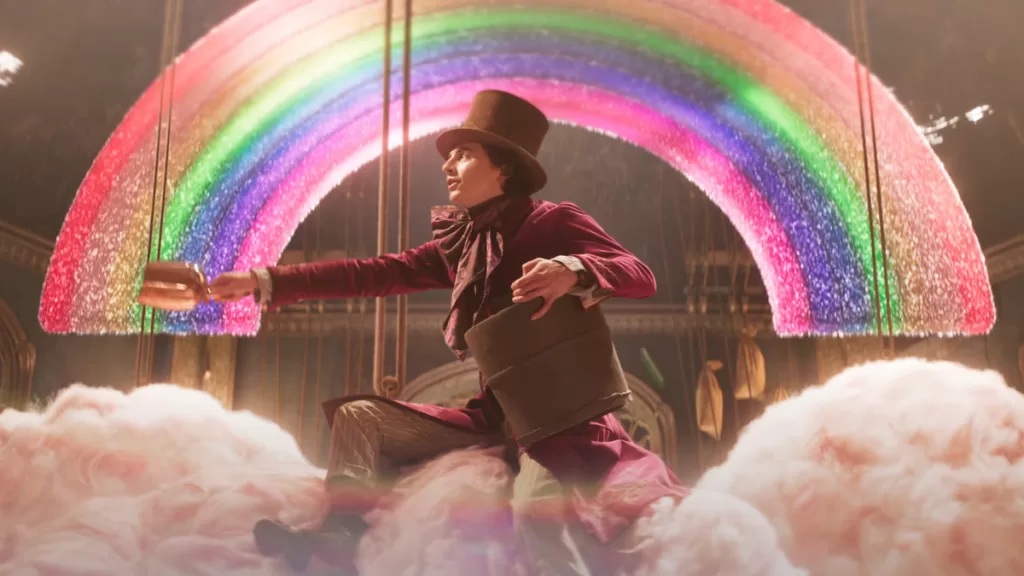
One thing that struck me as somewhat of a revelation in recent years is how talented Timothée Chalamet is. I went from barely knowing who he was to fervently looking forward to what he’ll do next. It’s not easy having a range that encompasses Paul Atreides, a terrifying drifter, and Willy Wonka. So it’s fair to say he’s having a moment right now, and I welcome it. For his current role, he brings a captivating, energetic charisma to bear. He’s constantly singing and dancing (and sometimes awkwardly rhyming). Wonka is optimistic to a fault, and manages to use his mystical knowledge of chocolate making to conduct acts of culinary magic.
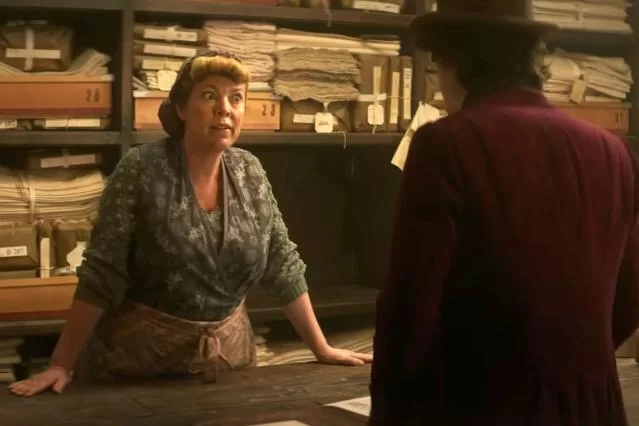
Now, many prequels fail to live up to the original, but I’m happy to say that Wonka is at least as entertaining as Willy Wonka and the Chocolate Factory (the original classic, not the creepy Johnny Depp version). A big part for that success comes down to the directing of Paul King, who you may know from the ridiculously cozy Paddington movies. Wonka moves at a brisk pace, with extravagantly colorful set pieces and a cast that’s equally capable of dark humor and goofy slapstick. That includes the likes of Keegan-Michael Key, who plays a corrupt police chief; Olivia Colman, a demented innkeeper that enslaves her poor inhabitants to work off their debt in her laundry prison; and Rowan Atkinson AKA Mr. Bean as a chocoholic priest.
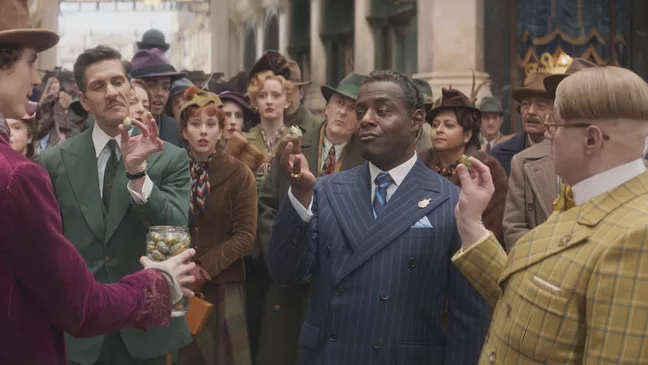
Then there’s the Chocolate Cartel, a trio of miscreants including Slugworth, Prodnose and Fickelgruber, that has the Gallery Gourmet on complete lockdown, and who pushes any upstart new shop out, and that’s if they’re lucky. There’s also relative newcomer Noodle, played by Calah Lane. She starts out as a broken down and broken-hearted orphan, but with Willy’s help, she finds a new drive to make something positive of her life.
The crux of the movie is that Willy wants to open up a shop in the Gallery Gourmet, and he quickly finds that everything is weighed against him. Most of the cops are on the take, bribed by the Cartel in sweet, sweet chocolate currency. There’s also plenty of thieves and con men willing and able to take every silver Sovereign Willy owns, from shoe shine urchins to struggling young mothers.
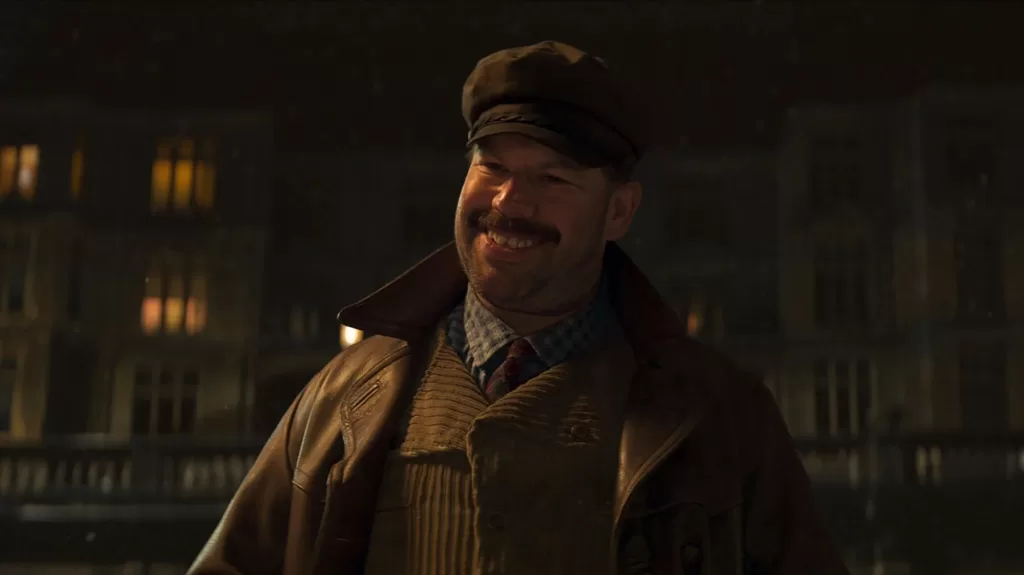
Perhaps the worst of all was the aforementioned innkeeper played by Colman, Mrs. Scrubitt, and her accomplice, the brutish Mr. Bleacher. She seems jolly and helpful at first, willing to keep Willy off the cold streets for a night. But he suddenly discovers he’s accrued debt for doing things such as using the stairs (coming and going), availing himself of the “mini bar” of soap, and even drinking a glass offered to him by Scrubitt herself. Young Noodle, who’s also “employed” by Scurbitt, tries to warn Willy to read the fine print before he signs Scrubitt’s contract. There’s just one problem: Willy is illiterate. So the optimistic young Wonka finds himself enslaved and thrown into the laundry dungeon.
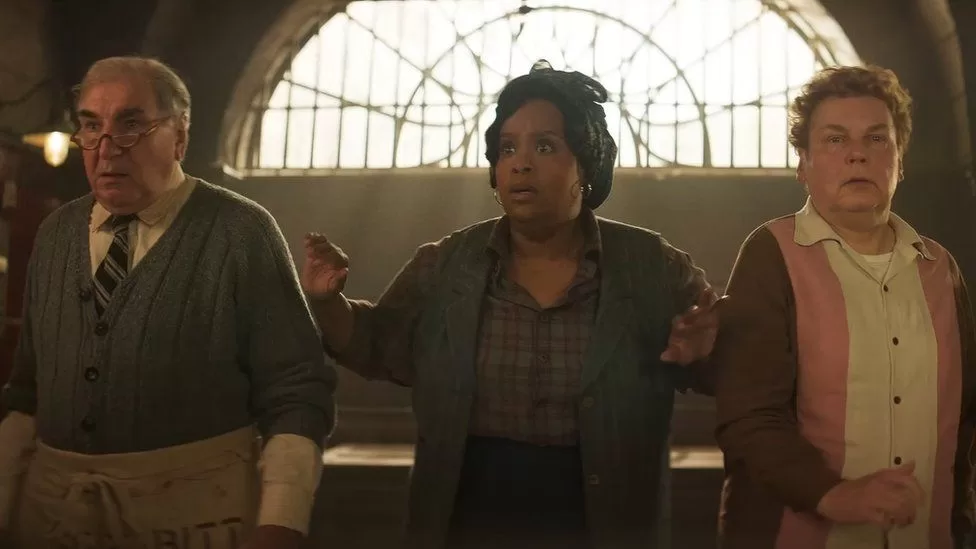
It wouldn’t be much of a movie if he stayed there, so fret not, Willy finds a way to evade these confines. But not before meeting and befriending a goofy cast of other inmates, including an accountant, failed comedian and others. At first they think Willy’s optimism is misguided, until he finds a way not only to escape each day, but to keep them from having to do an ounce of work.
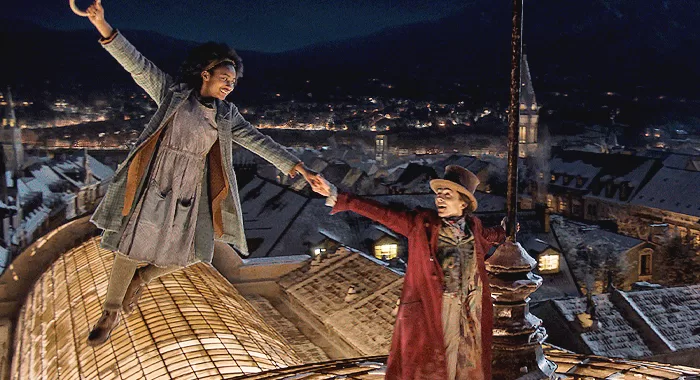
I should mention that while Willy Wonka is more known for his chocolate-making skills than anything else, we learn here that he’s also something of an alchemist. In one flashback, he recounts how he was actually interested in being a magician first, but then his chocolatier mother instilled in him a drive to learn her skills. Especially after she died from an unspecified illness when he was younger. So in the present, Wonka is equipped with skills and masterful tools of his trade. Those include an unfolding cabinet of ingredients, a staff that doubles as a coat rack, and a hat that seemingly can hold an endless number of items. And when he makes chocolate, he doesn’t use basic ingredients or limit the palette of his confections. No, he uses all sorts of unusual flavors and ingredients, notably including giraffe milk.
If that wasn’t enough, most of Willy’s chocolates have secondary properties thanks to their exotic ingredients. Which isn’t a surprise if you’re familiar with the original movie, but it’s no less delightful here. There’s chocolates that make you hover, others that make you drunk and emotional, even one called Silver Linings that helps people get out of the doldrums. Later in the movie, his chocolates are spiked with something called Yeti Sweat, which shockingly cause those that eat them to grow colorful masses of hair all over their bodies.
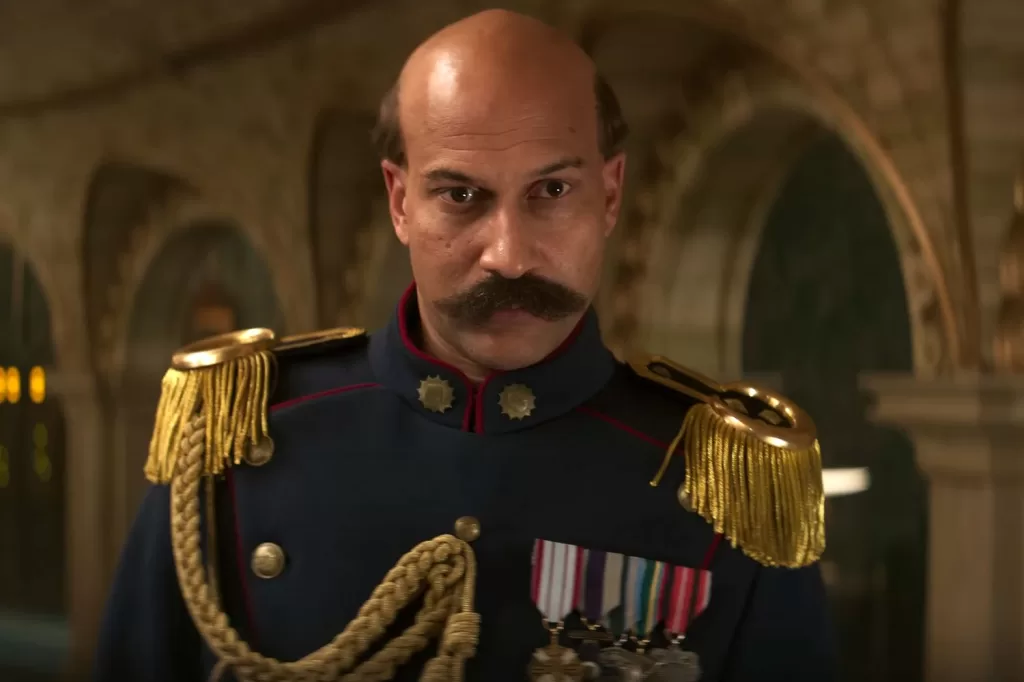
There’s ups and downs in Willy’s quest, thanks in large part to the scheming of Slugworth and the Cartel. To my surprise, despite how sweet the movie was, it’s also a little bitter and dark at times. There’s a Dickensian quality to the inequality on display, with orphans and twisted innkeepers. Willy even bites the bullet not once, but twice, nearly getting exploded and then almost drowning. But it wouldn’t be a heroic journey without challenges, and I’m happy to say there’s plenty here to keep Wonka busy and the audience entertained. Perhaps one of my favorite moments is when he starts opening pop-up shops all throughout town, making money and ducking into the sewers whenever the Chief of Police and his cops arrive to bust him.
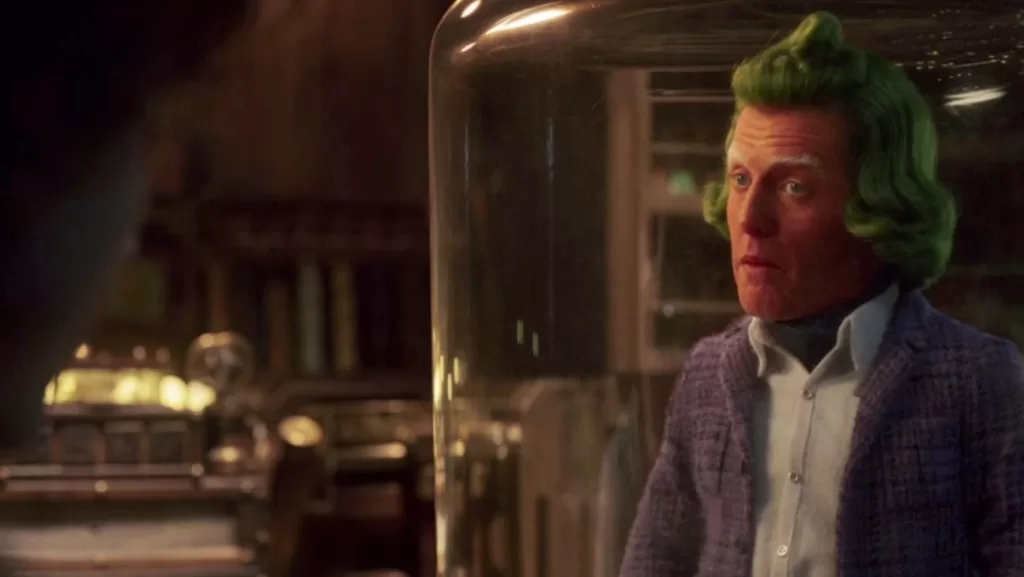
I’d be remiss if I didn’t touch on another exemplary performance in Wonka: Hugh Grant’s turn as an Oompa Loompa. I’m not a big fan of Mr. Grant normally. I didn’t think he was handsome in his earlier years, and I didn’t think he was charming in his later. But when he’s shrunk down into the form of a arrogant orange ninja? Then you have my attention. And he brings all his British gravitas to bear in a delightfully insane performance, complete with little songs and dances. Best of all, he’s after Wonka for reasons I won’t disclose, but which add a lot to the lore of the series.
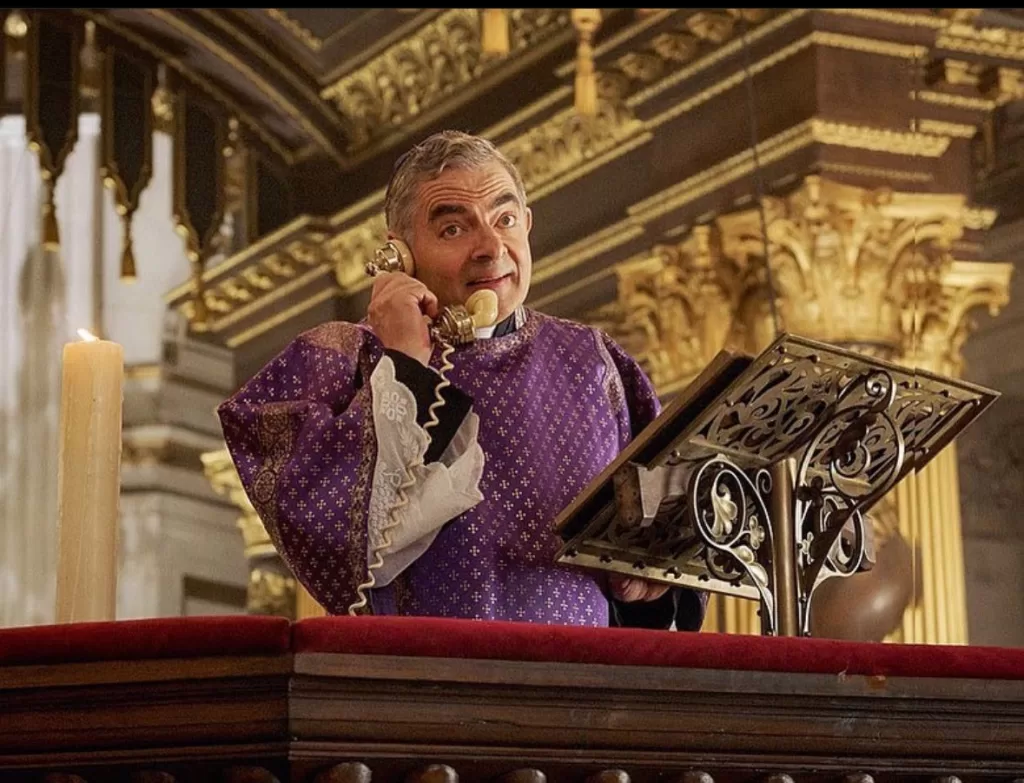
While there are no bad performances in Wonka, I am sad that we don’t get more screen time for the amazing Rowan Atkinson. I loved Mr. Bean as a kid, and I was excited to hear he was a part of the cast. But in reality, he’s on screen for maybe 10 minutes total, and the majority of that is towards the very end of the movie, much to my chagrin. On the plus side, when things really get crazy for him, it involves escaped zoo animals and a hungry, hungry giraffe chasing him. Other than that, my only real complaint is that I wanted to know more about Willy’s mother and childhood. Though in the grand scheme, these are pretty minor quibbles.
It’s hard to impart comedy in written form, but I’ll do my best to touch on some of the things that made Wonka such a delight. Part of Willy’s scheme to escape his confines involves tricking Mrs. Scrubitt into believing that Bleacher is some sort of Germanic lord, which escalates to him “showing some thigh” to captivate her. Then there’s what I call the Nutty Professor antics of Key’s Chief of Police, who gets more and more obese over the course of the movie thanks to his payment in chocolate. Perhaps one of my favorite things is when Hugh is trapped by Willy, only to escape and bash young Wonka upside the head with a frying pan.
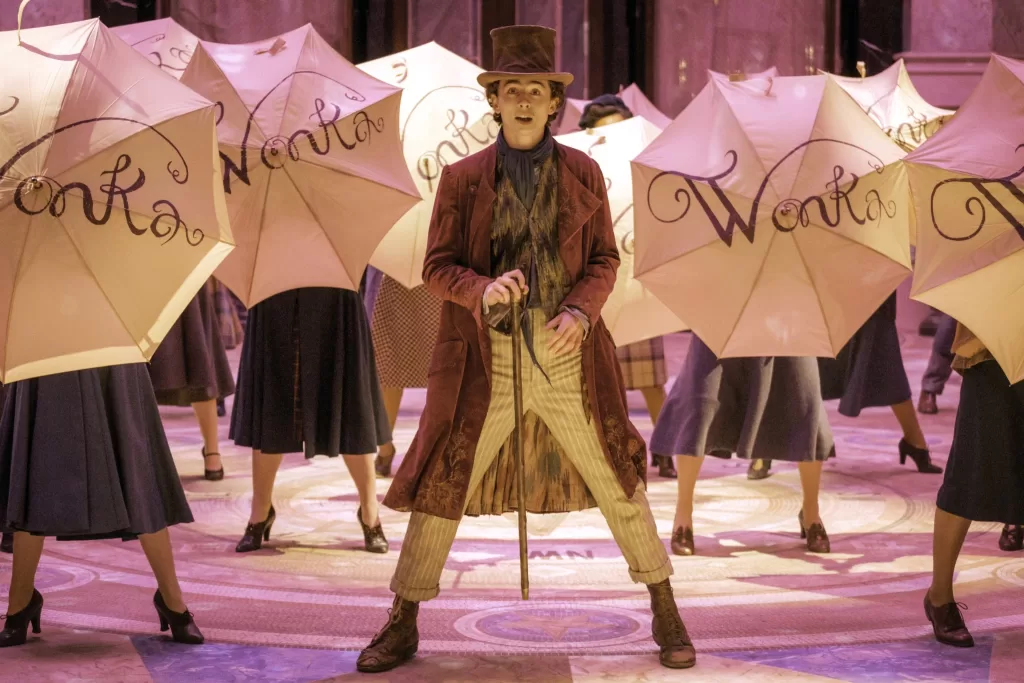
Combine this with the musicality of the movie, which not only features several original tracks, but even one very familiar song for fans. Some of the standouts were “Have You Got a Sweet Tooth”, “Scrub Scrub”, and “A World Of Your Own”. If it wasn’t enough that Chalamet is a talented actor, he also boasts an impressive singing voice, along with his constant dancing.
I won’t spoil the big moments of the movie, other than to say Noodle is more interesting that she first appears, and the Cartel’s stranglehold is undone by a well hidden treasure. Ultimately, the movie is all about one line delivered by Willy’s mother: “Every good thing in this world started with a dream“.
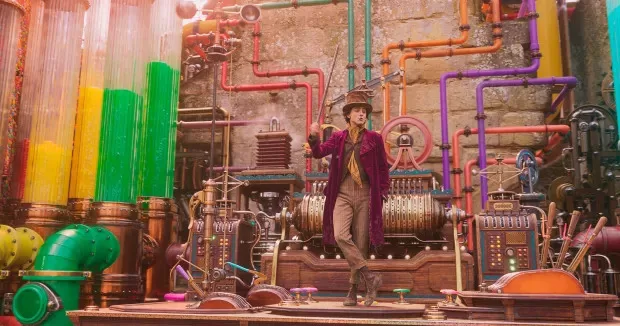
In the end, Willy’s dream comes true, and he manages to make the world a better place in the process. It’s a wonderful and colorful film which is the perfect thing to get your mind off the darkness of the world, even for a little while.
